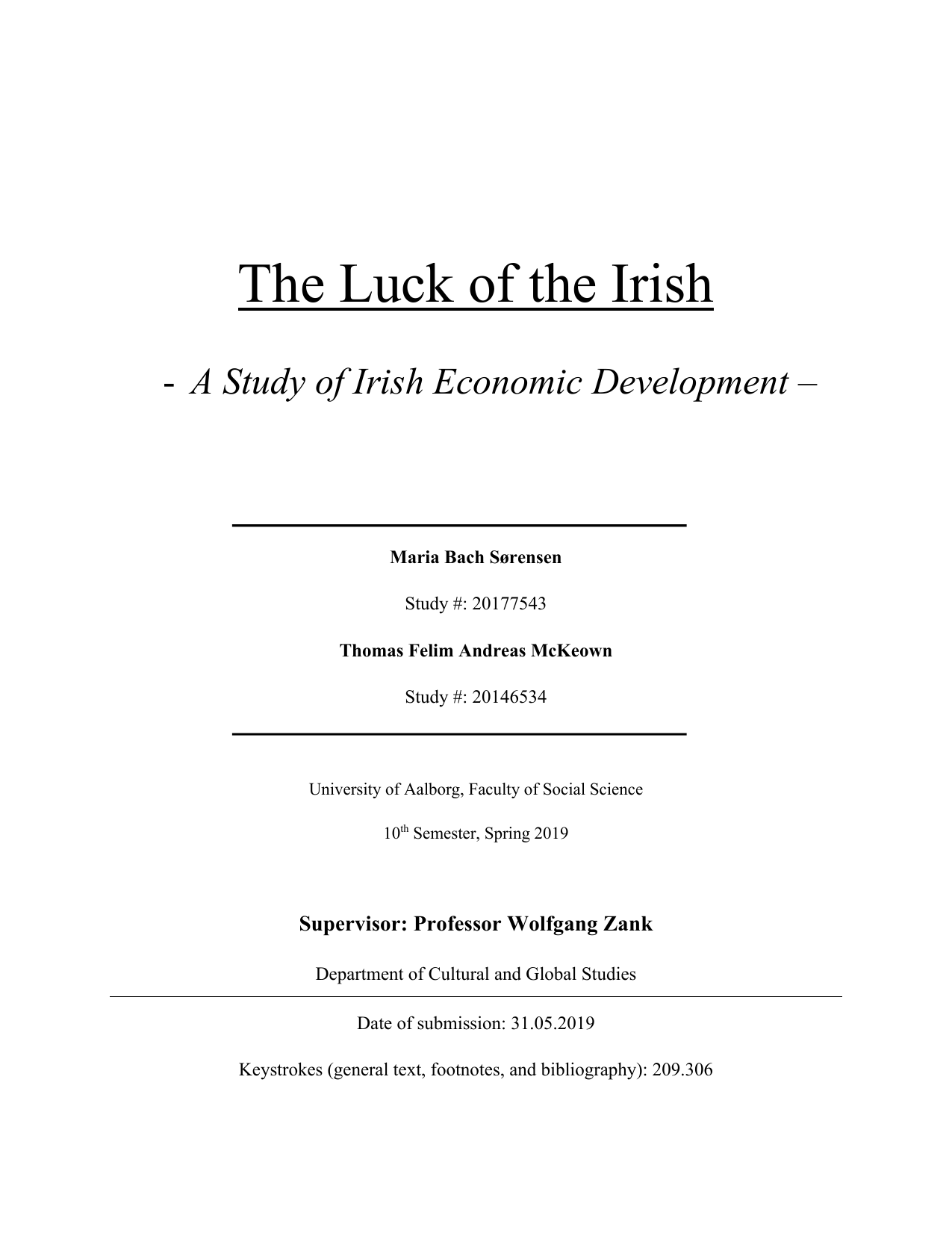
The Luck of the Irish - A Study of Irish Economic Development
Term
4. term
Publication year
2019
Submitted on
2019-05-31
Pages
91
Abstract
Abstract This paper set out to discover why Ireland experienced such successful economic development. In doing so, three concepts were outlined as being crucial to an understanding of Ireland’s economic development: Trade openness, Foreign Direct Investment & Human Capital. This paper has tracked Irish economic development with these concepts in mind by offering two hypotheses: 1- Increased Irish openness towards trade through trade liberalization triggered economic development by attracting substantial inflows of foreign direct investment. 2- Irish human capital played a significant role in attracting Foreign Direct Investment, and thus played a significant role in Ireland’s successful economic development. This paper analysed Ireland’s economic development from the 1949 to the present day. The decision to abandon trade protectionism came in the 1950s against a backdrop of Irish crisis and Ireland was one of the first countries in the world to adopt an FDI-orientated development strategy. This paper has tracked Irish economic development since the initiation of a more open economic policy over four distinct periods. Providing a description of the major factors determining Irish economic performance over the decades since the move from trade protectionism. This paper also explores the role of institutions and government in facilitating crucial economic policy changes. The ‘Celtic Tiger’ Economy reached unheard of levels of economic development in the 1990s and 2000s, before crashing in 2008 bringing about a substantial decline in gross domestic product, a trebling of the unemployment rate and increase in public debt. This paper has also given attention to the increasing Europeanisation of the Irish economy and how this has also contributed to Irish economic development. This paper has identified important variables in Ireland’s economic development: its well-educated workforce, forward looking business leadership, cooperative labour environment and its EU integration. The case of Ireland highlights the effect of low taxation in promoting economic development. This paper has found that low corporate taxes are integral to encouraging foreign direct investment and thus contributed greatly to the successful economic development of Ireland.
Keywords
Ireland ; Trade ; FDI ; Economic ; Development
Documents
